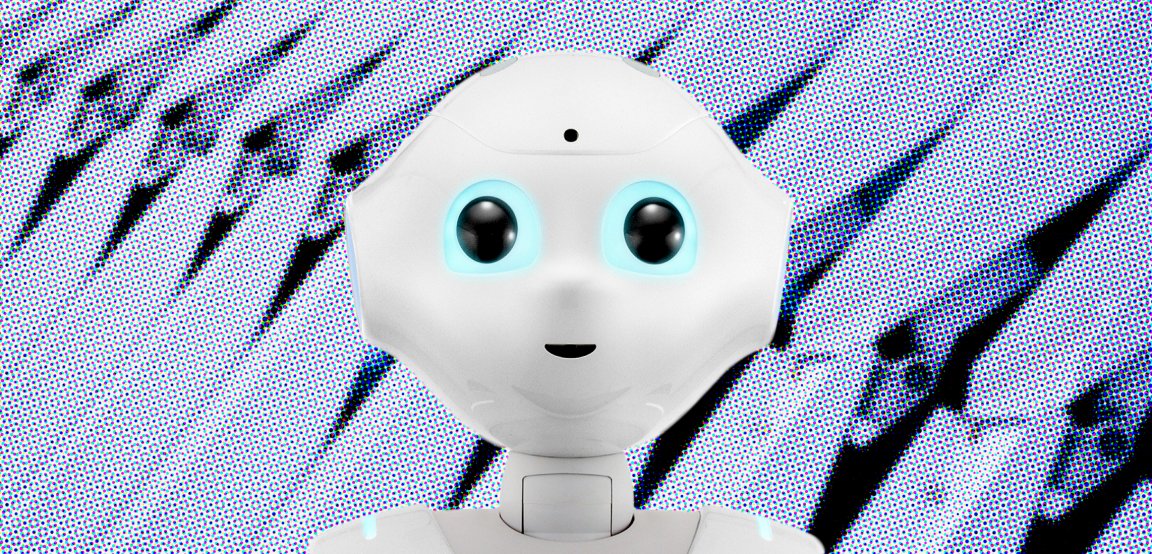
A glowing ring of LEDs light up in the darkness of the kitchen. It’s three o’clock in the morning, yet the Alexa smart assistant on the counter is in constant communication with an Amazon server center somewhere in northern Virginia, thousands of miles away.
Smart home assistants and speakers like the Amazon Echo or Google Home have been a huge success with tens of millions of Americans investing in the technology — allowing an always-on microphone into their homes. Internet-connected “smart appliances” like smart TVs, connected toasters (yes, that’s a real thing), and WiFi-enabled baby monitors are also a part of this growing trend, opening the doors for almost every electronic device in your home to communicate with the outside world.
But according to a recent survey by the Brookings Institution, accepting “robots” (as they’re referred to in the survey) into our homes still gives us plenty of pause.
The survey polled 2,021 adult internet users in June, asking them if they believe robots will take over common human activities within the next 30 years. A stunning 61 percent of respondents answered they were “uncomfortable with robots” in their homes, while only 16 percent felt comfortable.
Smart appliances and speakers could help to make our lives a bit easier by reading us the news, or telling us it’s about to rain –and that’s been enough to convince us of their value. So why are we uncomfortable inviting “robots” in to our homes when we’ve already surrounded ourselves with machines that pose just as much of a threat to our security and privacy?
Smart assistants and internet-connected devices are capable machines that shouldn’t be dismissed. They may not be able to follow your every command just yet, (don’t tell Siri) but are excellent at collecting information about you — your sleep quality, what shows you watch, the exact time you locked your front door, and when you checked the baby monitor. But that opens your home to plenty of vulnerabilities, too.
And the threat to our security and privacy is very real. The New York Times recently carried out 30 interviews with domestic abuse victims that laid out how “technology was becoming an alarming new tool” for abusers. The abusers are spying or tampering with internet-connected devices in the victims’ homes, making them feel unsafe, and invading their privacy. And this report is just one of countless others.
With these devices already in tens of millions of homes, it’s hard to imagine why we should draw the line at robots. “It is human nature to fear what we do not know and what we cannot control, including death,” Joanne Pransky, the World’s First Robotic Psychiatrist® tells Futurism. Over the last fifty years or so, pop culture (think HAL 9000 and Westworld’s Dolores) and provocative headlines in the media (“The robots are taking over!”) have contributed to the public fearing robots – which could explain our consequent distrust of them, and the headlines derived from the Brookings Institute survey’s results.
But there’s a lot about the survey itself that should give us pause.
First, there’s the vagueness of the term “robot.” People’s perceptions of the term “robots” range from automated bots you may encounter on the other end of a phone call to autonomous cars. The survey never even asked those surveyed what they thought a “robot” was in the first place.
“Imagine if the question were phrased, ‘Could you ever see yourself riding in an autonomous vehicle?’” says Pransky. “I bet the ‘61 percent who said they were uncomfortable with robots’ would have responded differently.”
Secondly, it’s irrelevant whether the survey did its homework to match the sample’s “gender, age, and region” to the U.S. Census Bureau’s estimates. “It’s about one’s experience and readiness and view on robotic technology. Have they ever interacted with a robot?” People’s perceptions range wildly, from someone, who sees no need for robots, to the early adopters, who have fully embraced them.
At the end of the day, robots — and to a degree smart home assistants — could be of tremendous help to us. They can support us both physically, and even mentally. It will be long before the robots will make us obsolete. In fact Pransky think’s it’s quite the opposite. “Robots don’t ‘take over’ – they replace functions that are dangerous, boring, repetitive, and demeaning.” And that’s why she believes we should embrace them by learning about them, and finding “meaningful ways of coexisting” with them.
That doesn’t mean we should dismiss any threats to our privacy and security — that’s not meaningful coexistence. By educating ourselves and others about these threats, we’d be one big step closer to holding companies like Amazon or Google accountable, and making our future lives alongside robots a lot more positive.